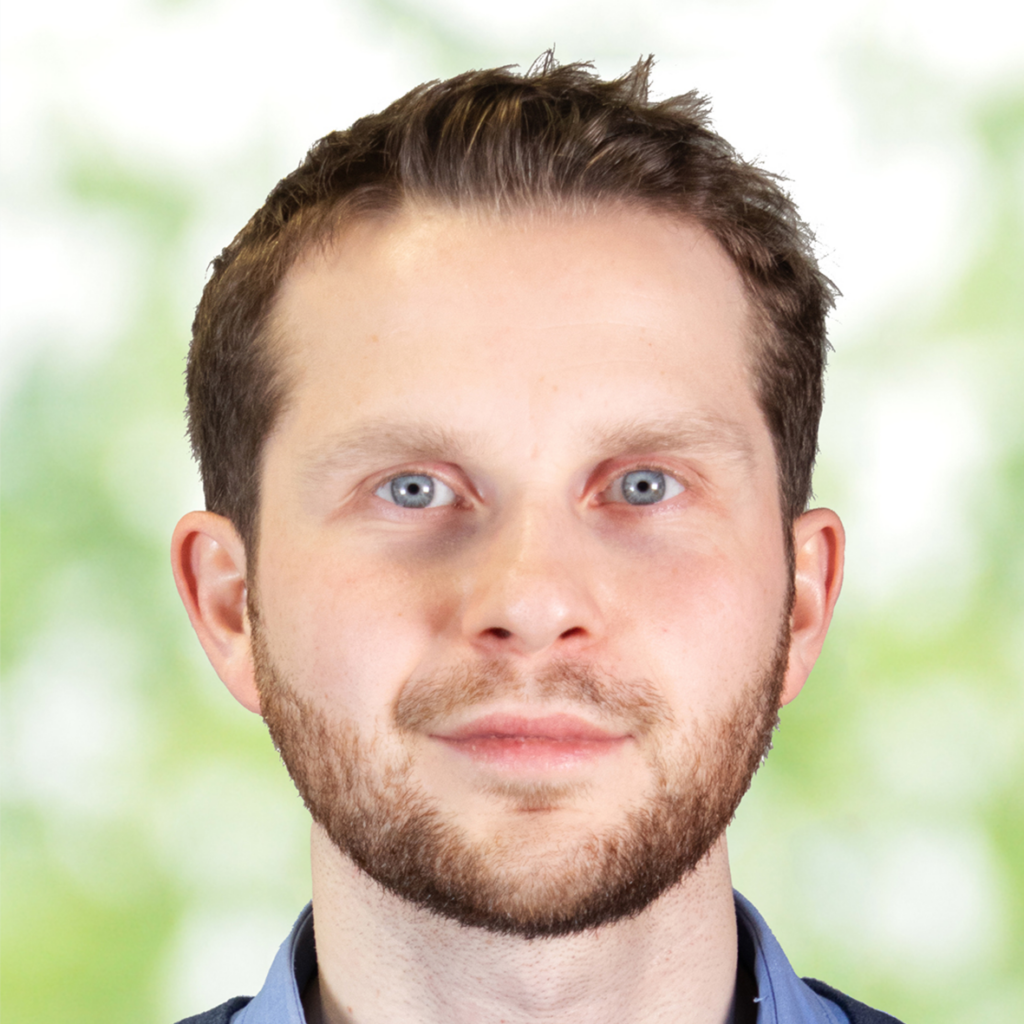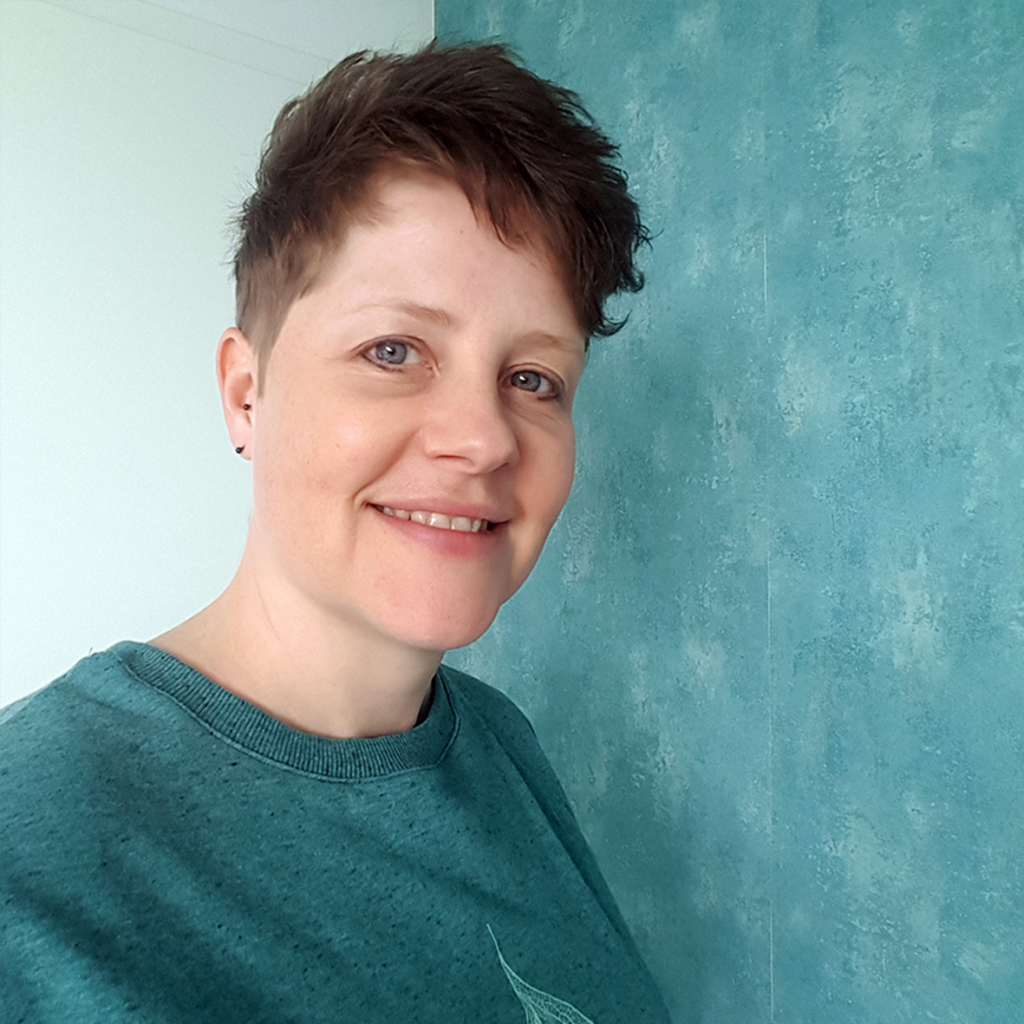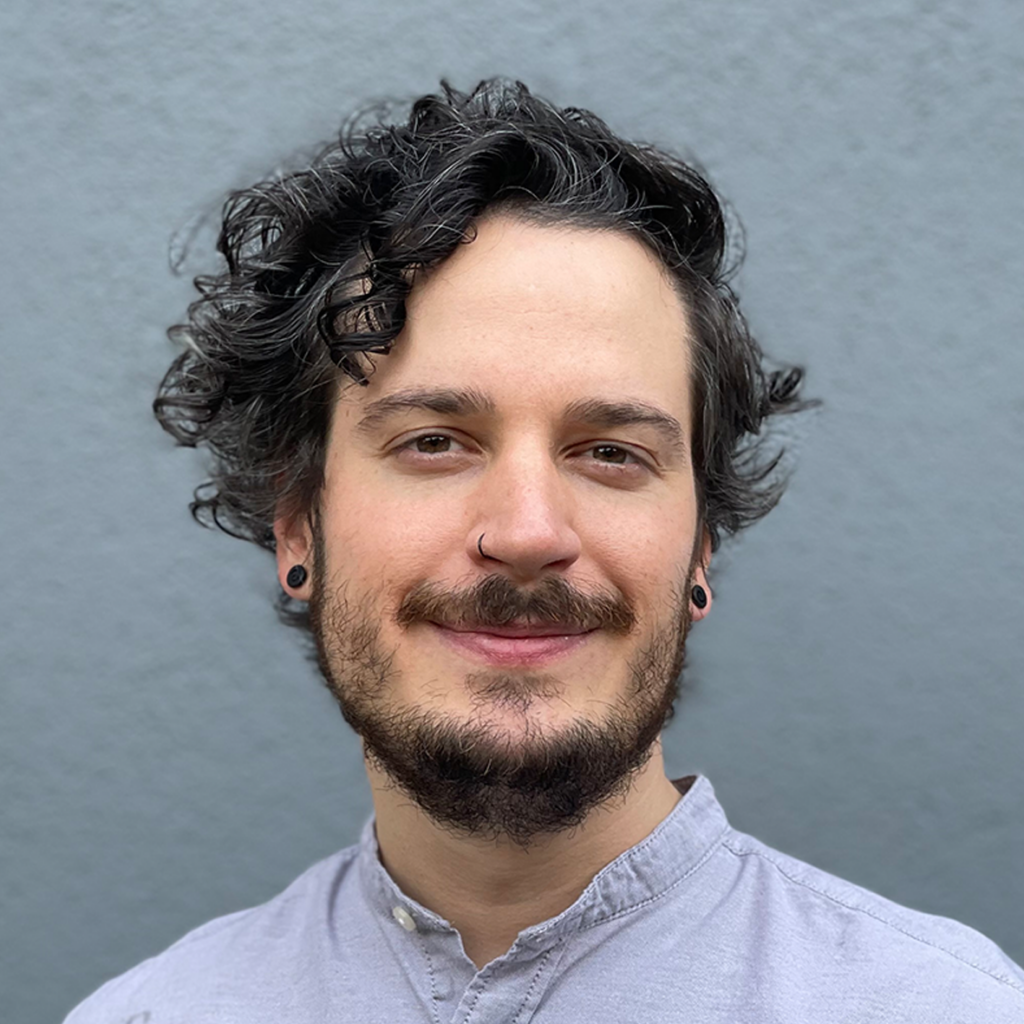Mensch und Computer 2024
Interactive Systems for Healthcare

Important Dates
- July 14, 2024: Paper/abstract submission EXTENDED DEADLINE.
- July 17, 2024: Acceptance notification.
- July 24, 2024: Submission of the camera-ready version
- September 01, 2024: Participation and presentation.
Workshop Plan / Schedule
| Time | Agenda |
| 08:50 - 09:00 | Welcome |
| 09:00 – 09:05 | Workshop Introduction |
| 09:05 – 09:50 | Keynote |
| 09:50 – 10:30 | Participants’ Presentations |
| 10:30 – 11:00 | Coffee-Break |
| 11:00 – 12:30 | Participants’ Presentations |
| 12:30 – 14:00 | Lunch Break |
| 14:00 – 15:30 | Group Activity I |
| 15:30 – 16:00 | Break |
| 16:00 – 17:00 | Group Activity II |
| 17:00 – 17:30 | WrapUp and next steps |
Keynote - Matthieu Tixier
In this keynote Matthieu Tixier, lecturer in Computer Science at the Université de Technologie de Troyes, UR LIST3N, Tech-CICO team, presents challenges and issues in stakeholders cooperation in several of his previous research projects on social support among family caregivers and telehealth. Matthieus' work is rooted in the fields of computer-supported cooperative work and social computing (CSCW), as well as human-machine interaction (HCI). His research focuses on the development of design approaches and tools for people with specific needs linked to their physical, cognitive or social situations and conditions.
Paper Presentation 1: Yannic Söhngen, Michael Prilla
DigiCare — Co-Creation of an eHealth application for Cancer Patients
Abstract: In this paper, we describe what the BMBF-funded research project DigiCare is and how we want to co-create an eHealth application for cancer patients. We start by describing why such an application is important and needed. Then, describe the process of the creation of our personas and how users are integrated into the development of the app from the beginning. At the end, we give some ideas from our workshops on why the involvement of patients in particular was important.
Paper Presentation 2: Isabel Höppchen, Stefan Tino Kulnik, Alexander Meschtscherjakov, Daniela Wurhofer
Lessons Learned from Co-Designing with Cardiac Patients and Healthcare Professionals in the Acute Hospital Setting to Inform Future Health Technologies
Abstract: Our work provides insights into how digital health technologies (DHTs) can support patient pathways in cardiac rehabilitation (CR). Therefore, we conducted three co-design workshops together with 17 participants who were cardiac patients and healthcare professionals. Paper prototyping activities were situated in the acute hospital setting to provide the physical context where patients’ CR journeys usually start. In this workshop contribution, we outline our co-design approach and lessons learned to inform and inspire further research about co-creating interactive systems for healthcare.
Paper Presentation 3: Maryam Nawaz, Markus Helfert, Joseph Timoney, Marco Alfano
Empowering Patients Through Conversational Agents Enhancing Participation and Personalization in Healthcare
Abstract: Health empowerment is referred to as the ability to make decisions about one's own health through self-awareness, goal-setting, continual monitoring and feedback. Health information technologies, which play a crucial role in helping people overcome barriers to healthcare, such as accessing health information, setting goals, and managing. While considering health technologies, conversational agents emerge as an ideal solution for addressing diverse aspects of health-related improvements, healthcare provision, ensuring 24/7 accessibility and convenience, and serving as a knowledge source for specific health needs. In this paper, the concept of digital transformation drives our mapping of the human health empowerment elements into a format that can be analyzed and acted upon using the functionalities of a dedicated conversational agent, i.e., a chatbot.
We provide a mapping of health empowerment elements that results in a combined set of measurable factors of health empowerment as an outcome. This mapping is going to allow the future implementation of health conversational agents for patient health empowerment. We performed a detailed literature review of the last five years of publications that are available on multiple databases (Embase, PubMed, Scopus and Web of Science) with selected sets of research keywords. The reviewed publications were related to personal health empowerment concepts, definitions and theories and their relation with digital intervention technologies such as health conversational agents or chatbot functionalities. The result of the identified set of health empowerment elements that can be broadly classified under the categories of understanding, deciding, and acting has been analyzed. Further analysis allowed us to translate the underlying details of these three elements into conversational agent functionalities such as health knowledge, education and support, encouragement, personalized recommendations for decision-making, and health goal management and monitoring. In the future, contributions should consider the opinions of all stakeholders, including healthcare experts and individuals with health needs, involved in co-creative and participatory processes. Additionally, criteria for assessing health empowerment should be directly connected to improved health outcomes
Paper Presentation 4: Kathrin Deisenhofer, Bastian Wenzel, Tobias Wörle, Jochen Geiselhart
Empowering Older Adult Care through Participatory Digital Solutions: A Case Study of Community Implementation
Abstract: The demand for care and support for older adults is rising, compounded by a growing shortage of skilled workers in the care sector. As a result, informal and voluntary support services have become increasingly vital. Digital platforms are seen as promising tools to organize and coordinate these services effectively. The project 'Implementation and Engagement-Promoting Potentials of a Digital Solution for Assistance Matching for older adults' (IPot) aims to scientifically monitor the implementation of a digital solution in a municipally-supported neighborhood assistance program in southern Germany. This study investigates the factors for successful implementation, the role of participatory methods, and the platform's impact on engagement. Utilizing the Design Case Studies approach, which emphasizes socio-technical integration and user participation, the IPot project evaluates the implementation of the Hilver platform in "Kümmerei Gut leben", a neighborhood program of the municipality Sulzberg / Bavaria. The project adopts a focused ethnographic research design to provide detailed insights into the process. Findings suggest that effective implementation requires continuous adaptation and development of the technology, tailored to local needs through participatory elements. The creation of a Community of Practice within the program has fostered a collaborative learning environment, highlighting the necessity of involving users not just in development but also in the implementation phases to ensure sustainable integration and acceptance of new technologies.
Paper Presentation 5: David Stuzek, Richard Paluch, Claudia Müller
Interdisciplinary Design for Telemedical Diagnostic Systems: Exchange processes of initial stakeholder feedback in a Long COVID project
Abstract: Developing telehealth systems to address global health challenges is becoming increasingly rapid. This can lead to increased complexity, especially in interdisciplinary research projects between industry, medicine and socio-informatics. Especially when partners do not share a disciplinary language or perspective. In this position paper we would like to reflect on the negotiation and development process of an adapted method to gather first practical experiences for the implementation of functionalities of a speech-based diagnostic system to support people with Long COVID symptoms and the associated challenges and influences with the project partners. We want to show that for the design of hybrid healthcare systems it is important, that an understanding between disciplines and approaches should be achieved.
Paper Presentation 6: Mareike Focken, Sabrina Großkopp, Alina Huldtgren
Die Kunst der Kommunikation: Unterstützungsprozess zur Einigung auf Begriffe im interdisziplinären Kontext zur Schaffung eines gemeinsamen Verständnisses
Abstract: In der partizipativen Technikentwicklung im Gesundheitsbereich wird interdisziplinär gearbeitet. Ein disziplinübergreifendes und gemeinsames Verständnis über den Forschungsgegenstand, verwendete Fachbegriffe und das gewünschte Ergebnis zu schaffen, ist für das Erreichen von Projektzielen essenziell. Herausforderungen sind die Verwendung von Begriffen, deren Bedeutung je nach Disziplin variieren kann, implizites Wissen, das nur Expert*innen zur Verfügung steht, und unbewusst vorausgesetztes Wissen über den eigenen disziplinären Kontext. Ein unterstützender Prozess zur Begriffsfindung kann zum Schaffen eines gemeinsamen Verständnisses und den Projekterfolg beitragen. Im Rahmen des Begleitforschungsprojekts CoCre-HIT soll eine Ontologie zur Wissensvermittlung in Form einer Webseite erstellt werden. Wir reflektieren unsere Erfahrungen mit einem unterstützenden Prozess zur Identifizierung und Definition interdisziplinär verständlicher Begriffe, um die Erstellung dieser Webseite zu ermöglichen.
Please contact Tim Weiler () or David Struzek () for questions.
Organisers

Tim Weiler is a research associate at the University of Siegen, Germany. His research focuses on PD and Co-Creation in healthcare. Hybrid interaction systems for maintaining health even in exceptional situations are analysed and a framework for co-creative methods is to be defined.

David Struzek is a PhD student at the Information Systems department, especially IT for the Ageing Society at the University of Siegen. He explores how people in urban public spaces can be supported in their physical movement or motivated by technical interactive systems. Furthermore, his interests lie in the design of good usability and UX with the support of creative methods.

Claudia Müller is a Professor of Socio-Informatics, specialising in “IT for the ageing society” at the University of Siegen, Germany. Her expertise is PD with and for older adults, vulnerable user groups and local communities. She is representative chairwoman of the commission of the Eighth Federal Government Report on Older People.

Alina Huldtgren is Professor of Digital Health and Intelligent User Interfaces at Düsseldorf University of Applied Sciences. She holds a PhD in HCI and runs a co-design lab for digital health (www.codeforhealth.de). Her research focuses on empowering, among others, vulnerable groups (e.g. people with dementia, children) in digital health development. She is PI in a project on engagement of older citizens, and partnering CoCre-HIT (cocre-hit.de), a project on co-creation in hybrid healthcare.

Holger Klapperich works as a post-doctoral researcher at the Faculty of Media at Düsseldorf University of Applied Sciences. He holds a PhD on the topic of "The compatibility of efficiency and well-being" and researches well-being-oriented design of digital technology in the eHealth sector. He led the funded project "NoStress" in the working group "Experience and Interaction" (Prof. Hassenzahl) and the EFRE-funded research project "Design for Wellbeing.NRW".

Sabrina Großkopp is a research associate in the group “CoDe for Health” (Prof. Huldtgren) at the Faculty of Media at Düsseldorf University of Applied Sciences. As a practitioner of product design and UX researcher in the field of HCI, she explores how phenomena such as smart homes and IoT affect our well-being through new modes and aesthetics of interaction. She co-managed the funded project “PraktikApp” in the working group "Experience and Interaction" (Prof. Hassenzahl).

Florian Fischer is a research associate at the Bavarian Research Center for Digital Health and Social Care, Kempten University of Applied Sciences. He is an expert in issues related to digital health, global health and evidence-based public health. His main research focus is on social aspects of digitalization in the context of healthy
ageing.

Angela Osterheider is a research associate at the Catholic University of Applied Social Sciences Berlin. The main focus of her work is on participation, citizen involvement and transdisciplinarity, risk and science communication in the fields of medicine, natural sciences and technological innovation. She is also interested in the evaluation and impact of participation processes.

Wanda Gaertner is a research associate and PhD student at the Fraunhofer Institute for Applied Information Technology FIT. Her work focuses on participatory innovation processes and design research with a strong focus on inclusion and accessibility.
